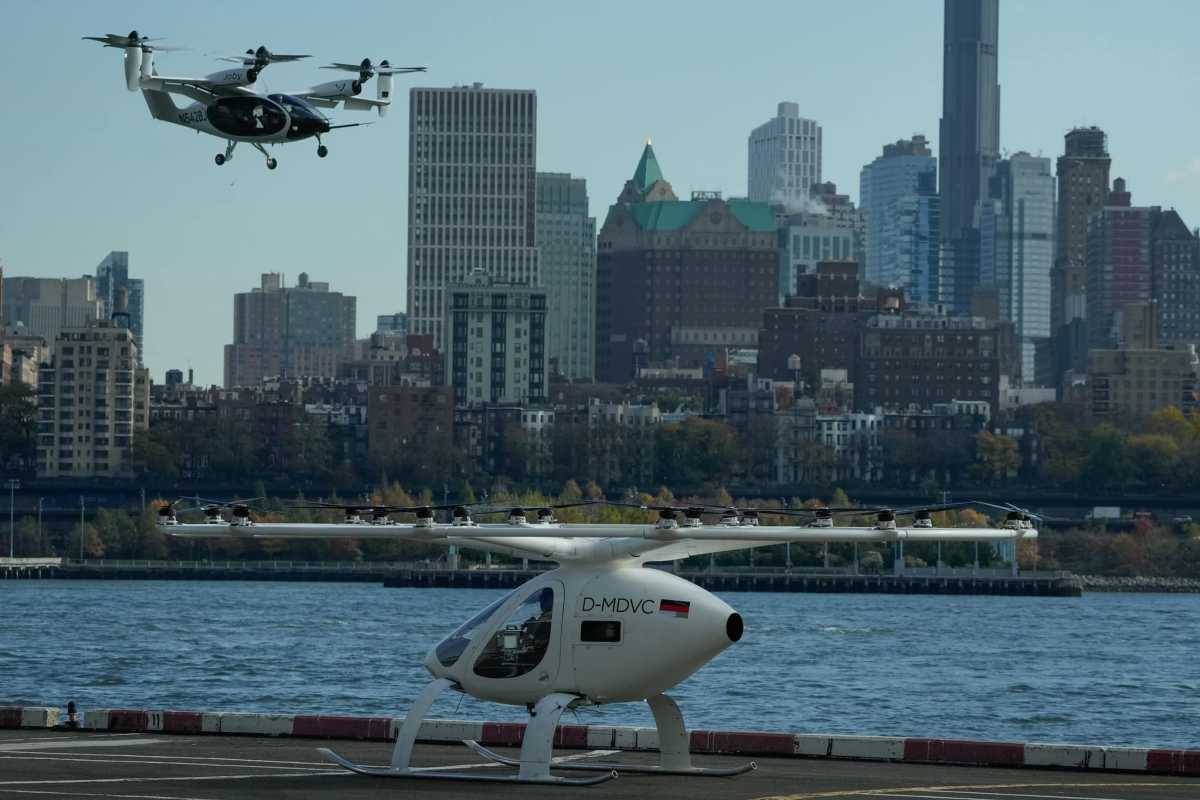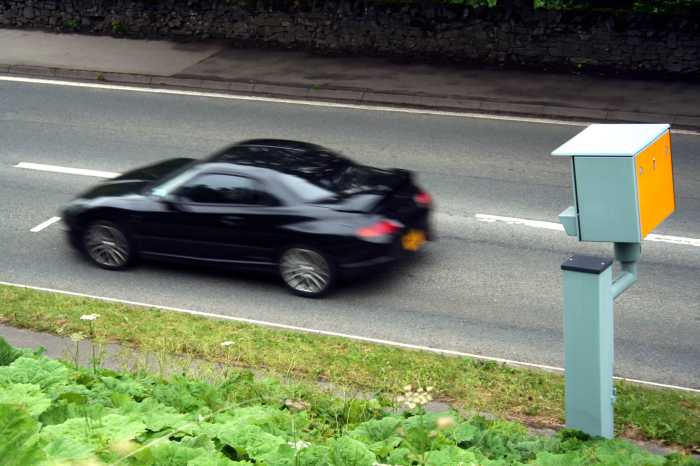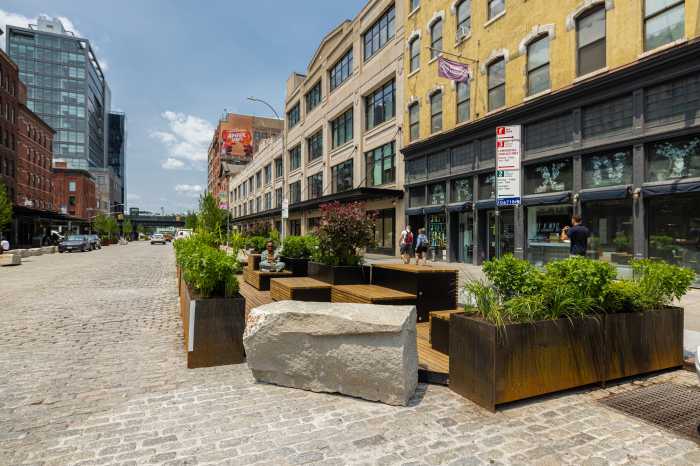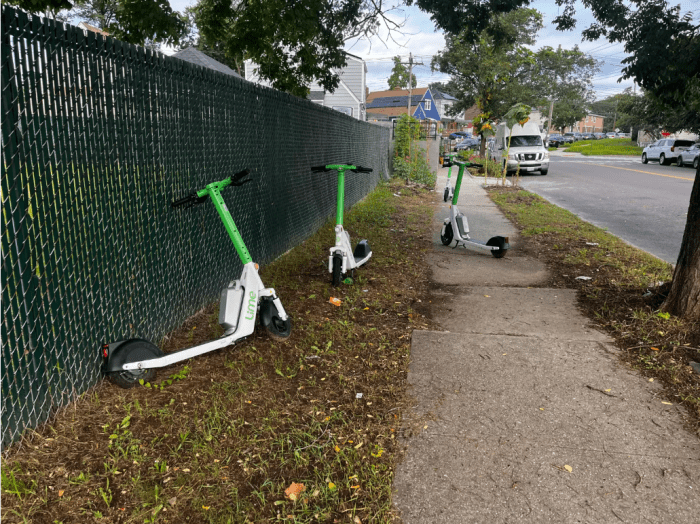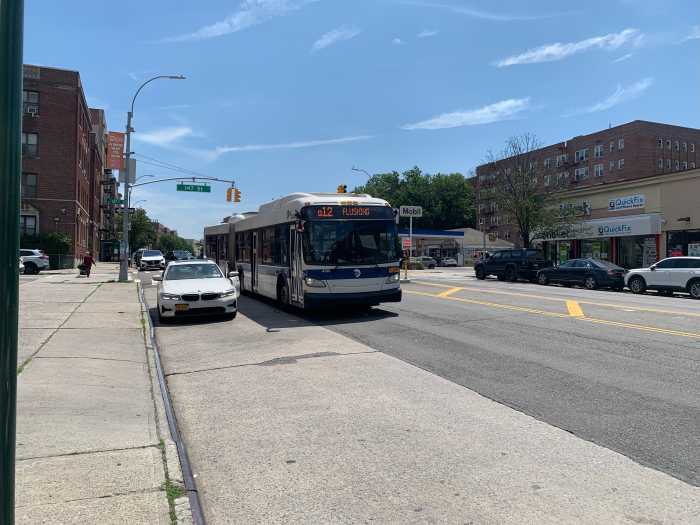Mayor Eric Adams wants downtown Manhattan’s heliport to become a hub for quieter and cleaner aerial transportation with new electric vertical takeoff and landing (eVTOL) vehicles, and will require the new operator of the helipad to install infrastructure to support them.
Saker Aviation’s contract to operate the FiDi helipad expired this year, and on Monday the mayor said any new vendor must commit to building out infrastructure for charging and other needs associated with electric aviation, which is quieter and more climate-friendly than a traditional helicopter.
That would address some longstanding complaints about helicopters taking off and landing at the downtown helipad, namely the high level of noise they produce almost entirely for sightseeing trips by tourists and traffic-free commutes by the rich and famous.
The operating agreement would also require a vendor to build out a hub for “last-mile” freight distribution, and specifically one that makes use of marine transportation that would take trucks off the streets.
“Today, we are taking sustainability to the sky and our streets, and New Yorkers can feel the electricity in the air in our city as we electrify our heliport infrastructure,” Hizzoner said in a statement. “We will not only put New York City at the cutting edge of sustainable flight technology while addressing a persistent quality-of-life issue with helicopter noise, but also get trucks off the road and make our streets safer.”
eVTOLs represent an emerging technology that its backers say is the future of aviation, replacing noisy and polluting helicopters with clean, electric vehicles that take off, hover, and land like helicopters, but largely without noise.
But “emerging” is indeed the key word, as eVTOLs have not actually been approved by the Federal Aviation Administration for commercial flights, despite a united lobbying front from the industry seeking to make them ubiquitous. Numerous startups in the industry have seen their prototypes involved in worrying crashes that raise questions about the technology, from mid-air glitches to spontaneous combustion.
“FAA’s gonna give us procedures and rules, FDNY, everyone is gonna give us the procedures and rules when you’re trying something new, no different than any other technology that’s introduced,” Hizzoner told reporters at the heliport on Monday. “We’re just listening to all of our safety folks to make sure we do it right. And who doesn’t like a fireman around us?”
The city’s Economic Development Corporation, which controls the franchise rights for the heliport, has put out a “request for proposals” from vendors interested in operating the heliport. The RFP will be closed in January, and a vendor will be selected in the spring.
The administration is not worried about uncertainty in the FAA’s approval process for eVTOLs, and EDC’s CEO Andrew Kimball said he expects them to be commercially approved by 2025 or 2026.
“What’s exciting is that things are moving very fast,” said Kimball. “We’ve been talking to the industry, obviously, we’ve been talking to FAA officials. And we fully expect that these will be operational commercially in 2025 or 2026, so within the next five-year contract for this heliport.”
Spokespersons for the FAA did not immediately respond to a request for comment.
Monday saw eVTOL tech demonstrations from two companies in the space, Joby and Volocopter.
Chopper critics, who have long pled for the city to disallow nonessential helicopter flights, were cautiously optimistic about the news.
“For too long, loud, low-flying, nonessential helicopters have been a major source of reduced quality of life for New Yorkers,” said Melissa Elstein, chair of Stop the Chop NY/NJ. “The vision of a ‘quieter and more sustainable’ multimodal port with alternatives to fossil-fuel based helicopters and as a ‘hub for sustainable transportation’ is an important first step by Mayor Adams’ administration.”
But it’s not a full victory for whirlybird skeptics. The RFP only requires a new vendor to provide “incentives” for flight operators to utilize eVTOLs instead of helicopters, and traditional choppers will still be able to use the helipads for the foreseeable future, especially with eVTOLs still needing approval.
Further, another city-owned heliport at 34th Street, operated by Atlantic Aviation, is not in line for a similar transformation.
Brooklyn Councilmember Lincoln Restler, part of whose district is in the flightpath of choppers heading to and from the downtown helipad, said Monday’s announcement is “a step in the right direction” but contends the new lease should ban traditional choppers from the site once eVTOLs are federally approved.
“The plan for a more sustainable heliport in Downtown Manhattan — that can operate electric helicopters — is a step in the right direction,” Restler said in a message to amNewYork Metro. “But the Mayor and EDC should mandate as soon as FAA approvals are secured that only electric helicopters are permitted to operate at the Downtown and 34th Street heliports to truly make an impact in reducing noise and air pollution from our City’s helicopters.”
The franchise agreement would only accommodate FAA-certified vehicles, and would not allow eVTOLs to be piloted by unlicensed customers, as one Texas startup proposed for Manhattan’s waterfronts last year, an EDC spokesperson confirmed.
Read more: Cross Harbor Freight Tunnel Environmental Review Resumes



